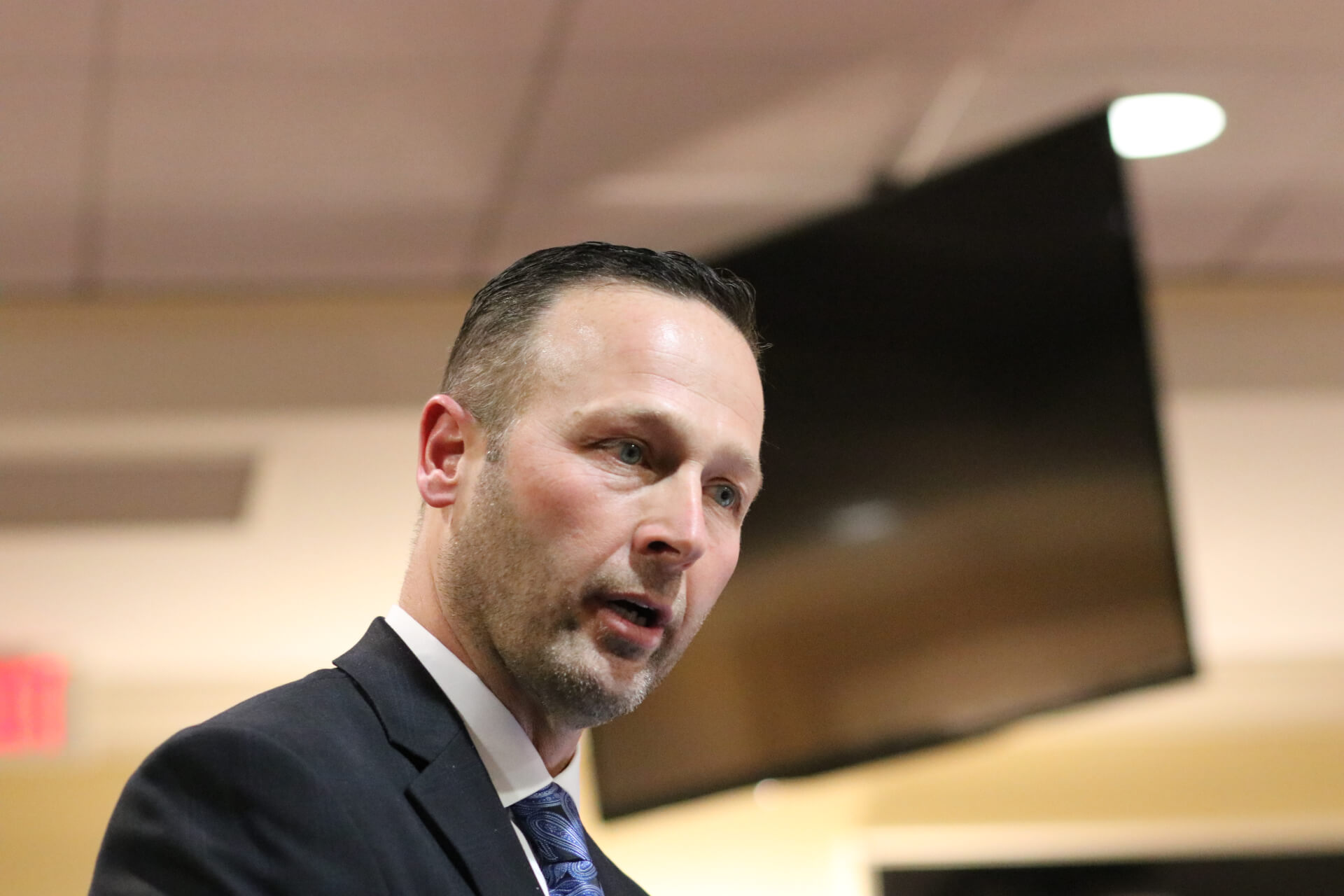4 Private Sector Teams Seeking State Highway Contract Clear First Hurdle

All four of the private-sector teams seeking to build “express toll lanes” in the Washington, D.C. suburbs have cleared their first hurdle.
The Maryland Department of Transportation and the Maryland Transportation Authority announced late Friday that the four consortia who sought “shortlist” status have been granted it.
The designation means they can respond to the state’s “request for proposals” on the Hogan administration’s plans to widen portions of the Capital Beltway (Interstate 495) and I-270, and rebuild the American Legion Bridge.
The first portion of project’s first phase calls for four new variable toll lanes from the George Washington Parkway in Virginia to the Interstate 370 exit on I-270. Two lanes would run in each direction.
Maryland wants private-sector firms to design, finance and build the new lanes in exchange for the right to set and collect variable tolls for 50 years or more. The firms would be responsible for the maintenance of the existing lanes on the two roads, all of which would remain free to motorists.
The Hogan administration maintains this arrangement is necessary because the state lacks the bonding capacity to handle the $9 billion to $11 billion project. MDOT has also said firms with global experience bring “innovation” that the state lacks. Space in much of the I-495 and I-270 corridor is extremely tight.
“As Maryland recovers from the COVID-19 emergency and as the region continues to grow, replacing the American Legion Bridge and maximizing efficient movement of people and goods will remain top priorities,” Transportation Secretary Greg Slater said in a statement late Friday. “Partnering with the private sector will help Maryland create opportunities and jobs, connect people to employment centers, improve transit, bike and pedestrian mobility, and help us keep our infrastructure in a state of good repair now and in the future.”
The plan’s many critics contend that only the well-to-do will have the resources to access the lanes, which are in wide use in Virginia and which they dub “Lexus lanes.” Critics in and out of government have complained that the state has not done enough to include transit in its preliminary design.
At a briefing this week, staff at the Maryland-National Capital Planning Commission complained that the just-released Draft Environmental Impact Statement neglected to sufficiently assess the environmental, stormwater and social justice aspects of the road widening.
Commissioners also complained about the project’s cost and financial viability.
The state’s push toward a public-private partnership solution to Montgomery County’s notorious traffic problems comes as another high-profile “P3,” the Purple Line, teeters on the brink of a work stoppage due to a contract dispute between the consortium in charge of the project, its construction team and the state over cost-overruns.
The four teams that reached the short list for the highway work now have until early next year to submit their designs to the state. MDOT and MDTA plan to select a preferred Phase Developer and recommend a Phase 1 P3 Agreement to the Board of Public Works in late spring or early summer of 2021.
The second part of Phase 1, along I-270 between I-370 and I-70, is undergoing a separate environmental review process.
The July 10 release of the DEIS kicks off a 90-day public comment period. Numerous local, state and federal officials have pressed the state to extend the comment period an additional 30 days or more to give residents more time to read and understand the 18,000-page document, to no avail.
The four companies will now compete to prove they are best positioned to bring the project home, moving the most traffic with the least impact on surrounding communities and the environment.
Said a source close to the process: “It would be silly to eliminate anyone so early. They want to show robust competition.”
The four teams making it to the state’s P3 “shortlist” are:
Accelerate MarylandExpress Partners
- Lead Project Developer / Equity: Itinera Infrastructure & Concessions, Inc.
-
Lead Contractors: Halmar International, LLC and Itinera S.p.A
-
Designer: Atkins North America, Inc. and Gannett Fleming, Inc.
Accelerate Maryland Partners LLC
- Lead Project Developer / Equity: Transurban (USA) Operations Inc. and Macquarie Infrastructure Developments LLC
-
Lead Contractor: Archer Western Construction, LLC
-
Designers: Dewberry Engineers Inc. and Stantec Consulting Services Inc.
Capital Express Mobility Partners
- Lead Project Developer / Equity: Cintra Global SE, Meridiam Capital Express, LLC, and John Laing Investments Limited
-
Lead Contractor: Ferrovial Agroman US Corp.
-
Designers: AECOM Technical Services, Inc.
Potomac Mobility Group
- Lead Project Developer / Equity: ACS Infrastructure Development, Inc.
-
Lead Contractor: Dragados USA, Inc.
-
Designers: Parsons Transportation Group Inc., Jacobs Engineering Group Inc., and HDR Engineering, Inc.




 Creative Commons Attribution
Creative Commons Attribution